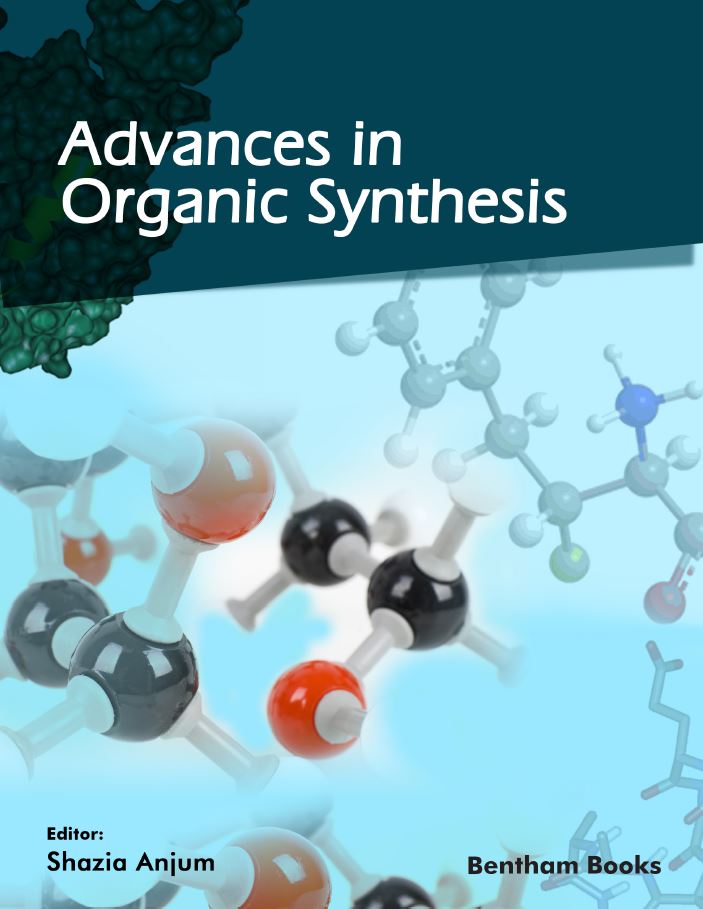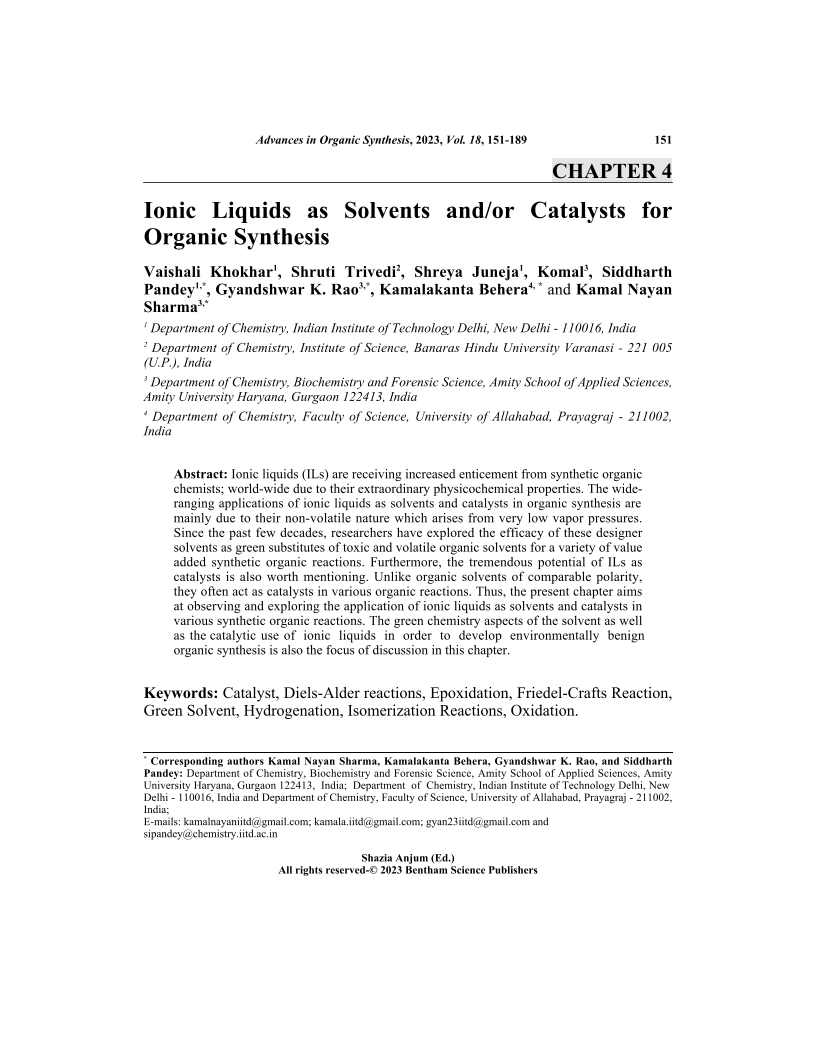Ionic Liquids as Solvents and/or Catalysts for Organic Synthesis

- Authors: Vaishali Khokhar1, Shruti Trivedi2, Shreya Juneja3, Komal4, Siddharth Pandey5, Gyandshwar K. Rao6, Kamalakanta Behera7, Kamal Nayan Sharma8
-
View Affiliations Hide Affiliations1 Department of Chemistry, Indian Institute of Technology Delhi, New Delhi 110016, India 2 Department of Chemistry, Institute of Science, Banaras Hindu University Varanasi - 221 005 (U.P.), India 3 Department of Chemistry, Indian Institute of Technology Delhi, New Delhi - 110016, India 4 Department of Chemistry, Biochemistry and Forensic Science, Amity School of Applied Sciences, Amity University Haryana, Gurgaon 122413, India 5 Department of Chemistry, Indian Institute of Technology Delhi, New Delhi - 110016, India 6 Department of Chemistry, Biochemistry and Forensic Science, Amity School of Applied Sciences, Amity University Haryana, Gurgaon 122413, India 7 Department of Chemistry, Faculty of Science, University of Allahabad, Prayagraj - 211002, India 8 Department of Chemistry, Biochemistry and Forensic Science, Amity School of Applied Sciences, Amity University Haryana, Gurgaon 122413, India
- Source: Advances in Organic Synthesis: Volume 18 , pp 151-189
- Publication Date: September 2023
- Language: English
Ionic Liquids as Solvents and/or Catalysts for Organic Synthesis, Page 1 of 1
< Previous page | Next page > /docserver/preview/fulltext/9789815040791/chap4-1.gif
Ionic liquids (ILs) are receiving increased enticement from synthetic organic chemists; world-wide due to their extraordinary physicochemical properties. The wide-ranging applications of ionic liquids as solvents and catalysts in organic synthesis are mainly due to their non-volatile nature which arises from very low vapor pressures. Since the past few decades, researchers have explored the efficacy of these designer solvents as green substitutes of toxic and volatile organic solvents for a variety of value added synthetic organic reactions. Furthermore, the tremendous potential of ILs as catalysts is also worth mentioning. Unlike organic solvents of comparable polarity, they often act as catalysts in various organic reactions. Thus, the present chapter aims at observing and exploring the application of ionic liquids as solvents and catalysts in various synthetic organic reactions. The green chemistry aspects of the solvent as well as the catalytic use of ionic liquids in order to develop environmentally benign organic synthesis is also the focus of discussion in this chapter. nbsp;
-
From This Site
/content/books/9789815040791.chap4dcterms_subject,pub_keyword-contentType:Journal -contentType:Figure -contentType:Table -contentType:SupplementaryData105

